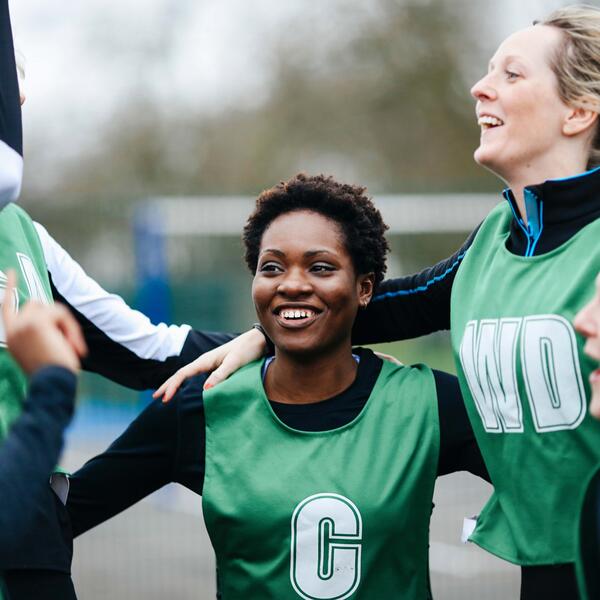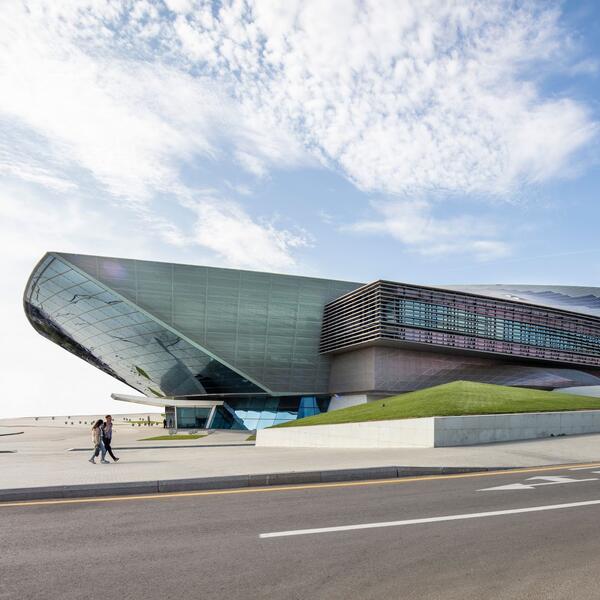Releases
Cydonie joins the fight against doping in sport
She has also been personally affected by doping, and was denied her right to stand on the podium at the 2001 World Athletics Championships by rivals who have since been sanctioned for taking performance enhancing drugs.
Cydonie talks to Play True about the experience and what made her want to take a more active role in the fight against doping in sport.
Play True: At what age did you first know that you would one day be able to compete and beat the best sprinters in the world?
Cydonie Mothersill: It was a sequence of events that made me take track more seriously. It started during the latter years of my High School career - when I was just starting to understand the sport - along with performing well at the Caribbean Free Trade Association (CARIFTA) Games, particularly winning the double and receiving the Austin Sealy Award.
However it wasn't until my last year in college that I felt I could be a part of this elite group, and that I could make a success of becoming a professional track and field athlete.
PLAY TRUE: Who was your role model growing up and why?
CYDONIE MOTHERSILL: My role model growing up is my Mom. In fact, she still is my role model. She is a God fearing woman and her strength is resilient. She taught me along with my brothers, the importance of hard work, in trusting God and not in ourselves, to be honest and that no matter what the obstacles are ahead that we should press on. She is a woman of integrity. I also come from a very small family, and they have played a crucial part in shaping who I have become.
PLAY TRUE: When did you first become aware that doping was a problem in your sport?
CYDONIE MOTHERSILL: I cannot recall when I first became aware of doping in my sport. There wasn't an ‘aha’ moment. It was more a case of there being a lot of talk about the issue.
PLAY TRUE: How has doping in athletics affected you personally in terms of success, especially when you were denied a bronze at the 2001 World Championships until many years later?
CYDONIE MOTHERSILL: I have been affected personally by doping, and it’s important to remember that the damage it can inflict goes much deeper than the loss of a job, your livelihood, and the embarrassment it can cause. Doping weeds itself info families and can destroy them.
For me personally, being denied the rightful chance to stand on the podium at the 2001 World Athletics Championships in Edmonton to receive my bronze medal is something I can never get back.
Yes, it was wonderful to finally receive it at home last year because I was surrounded by my family and friends, and because the entire country got to be a part of that.
But no one will ever really know what I have been denied. No one will ever know what my contract could have been, what other endorsements might have come along? I used to think about these things, but now I do not bother myself with those thoughts - I've come to terms with what happened.
It is something I cannot get back or change so why dwell on it? Life goes on.
PLAY TRUE: Is there a specific experience that made you want to join the WADA Athlete Committee?
CYDONIE MOTHERSILL: When I was told by the president of our Olympic Committee, Mr. Donald McLean, that my name would be put forward for the nomination, I was honored just at the thought. I shared the idea with only my family as I thought oh how great to be considered, but I also wondered whether it was a long shot that I would be chosen.
Needless to say I am honored that I was nominated. My reason for being on this committee is firstly to educate myself on the role that WADA plays in athletics and sports in general. Many athletes have a misconception about WADA’s role, and I did too.
Also I love my sport and want it to have a better image, and for it to have longevity. So if I can play a part in changing people’s concept then I am pleased. My hope is that one day the playing field will be level.
PLAY TRUE: As one of the world’s leading sprinters, how seriously do you take your responsibility as a role model?
CYDONIE MOTHERSILL: I take my responsibility as a role model very seriously. I try to show by my actions and way of life that hard work, determination and self discipline are qualities that the youth of this world must be proud to have and attain.
I want to show the youth in my country that even though we are small in size we can make still make an impact in sports on the world stage. I hope my accomplishments will give them hope to dream beyond our shores.
PLAY TRUE: Is the problem of doping discussed amongst athletes at events?
CYDONIE MOTHERSILL: The problem of doping surrounds athletics, and as athletes we are concerned about how our sport is viewed, and the things that occur within its scope. So yes, the problem of doping is discussed. We do not speak publicly about those discussions, but we are aware of them.
PLAY TRUE: Athletes can earn big money these days: do you think that ‘clean’ athletes should be taking on more responsibility to make the sport ‘clean’.
CYDONIE MOTHERSILL: Clean athletes cannot take on any more responsibility in making our sport clean - apart from what we are already doing, which is speaking out against doping, and making ourselves available to drug testers.
I believe our hands are tied. How can we fight them, how do we convince them that the big money that they can potentially make isn't worth the consequences? We, the clean athletes, are trying to focus on performing well, despite the fact that maybe the odds are already against you.
PLAY TRUE: Do you think doping in athletics is becoming more or less of a problem, and have you seen the problem grow throughout your career?
CYDONIE MOTHERSILL: I think that doping is becoming more of a problem because the methods seem to be getting more sophisticated. It seems the cheaters are harder to detect. Throughout my career the face of doping has changed.
PLAY TRUE: If you had the chance, what would you say to a fellow athlete who is doping?
CYDONIE MOTHERSILL: If I had the chance to speak to a fellow athlete who is doping, I would say to them it's not worth it. The fame and the money just aren’t worth the consequences.
I would say that your decision to break the rules that govern our sport won’t make the playing field level because you believe others are doping. I would also say think about your family, your country and your sport - think about the damage and embarrassment that will follow.

